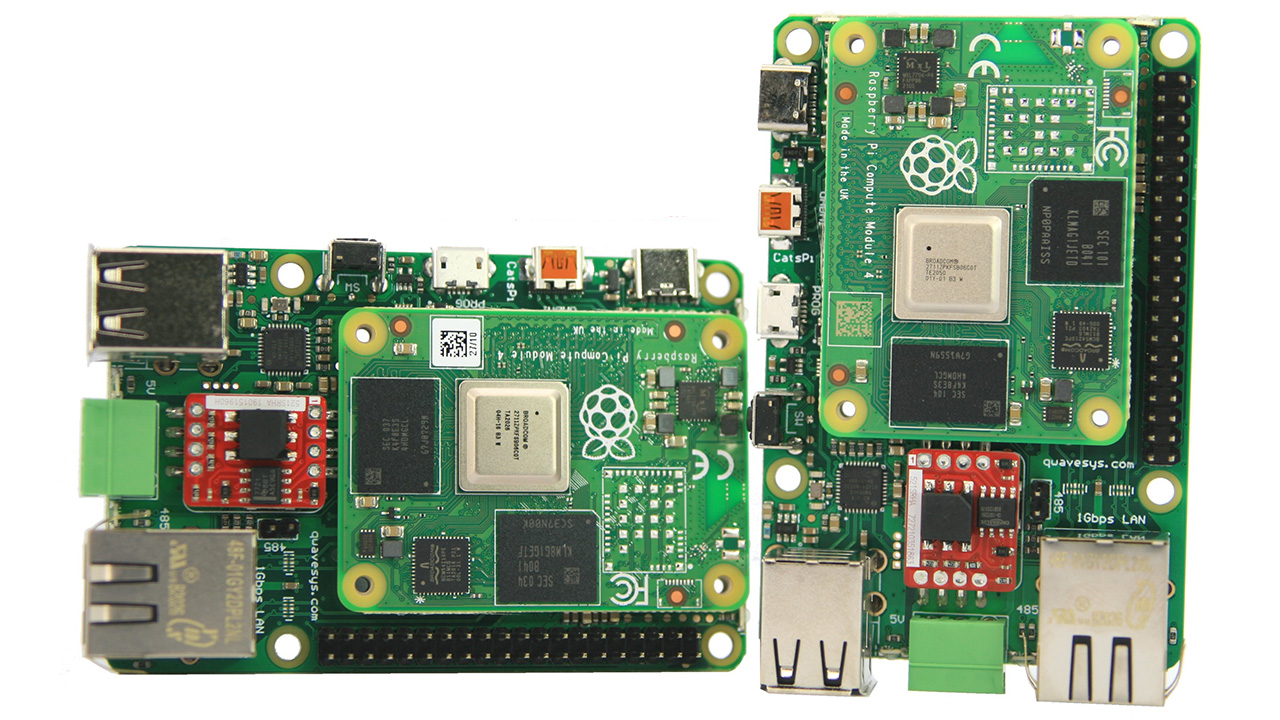Q-Wave Systems Release Industrial Controller for Raspberry Pi Compute Module 4
It works in planes, (model) trains and automobiles
Raspberry Pi Compute Modules are all very well, but by design they lack a few things usually found on a single-board computer, such as video output, or any other ports for that matter. This is because they’re designed for use in industrial applications and are to be plugged into custom designed PCBs, such as this new carrier board that’s surfaced out of Thailand, as noticed by CNX Software.

The CatsPi Industrial Lite from QwaveSystems sports Gigabit ethernet, USB 2.0, Micro HDMI, the usual 40-pin Raspberry Pi GPIO header, a watchdog timer based upon an ATTiny85 8-bit MCU, and perhaps most interestingly an RS-485 port. Like an RS-232 on steroids, RS-485 is a serial communications port used in industrial control applications. It can support speeds of up to 10Mbps or a cable length of 4,000ft, though not at the same time, and is useful anywhere that requires low-speed data communications with minimal wiring. RS-485 is used in aviation, theaters and in building automation.
As well as dropping the ports, the Compute Module 4 replaces the Pi 4’s whole USB 3.0 subsystem with PCIe Gen 2 (which the Raspberry Pi Foundation’s own carrier board exposes with a 1x slot), adds a configurable amount of eMMC flash storage, and is available in 32 different versions, with varying amounts of RAM, storage, and wireless connectivity. The boards can be used for all manner of DIY projects.
As CNX Software notes, the board can only be purchased online from Thailand, though shipping to other countries can be arranged by email. As the board doesn’t contain a Micro SD interface, you’ll need one of the Compute Modules with eMMC flash, and will probably want to add some cooling too, depending on the operating conditions and computing load. Another version of the board is in the works, with a Mini PCIe slot, Micro SD, Micro SIM/eSIM for WAN connectivity, and a bit more besides.
Get Tom's Hardware's best news and in-depth reviews, straight to your inbox.

Ian Evenden is a UK-based news writer for Tom’s Hardware US. He’ll write about anything, but stories about Raspberry Pi and DIY robots seem to find their way to him.